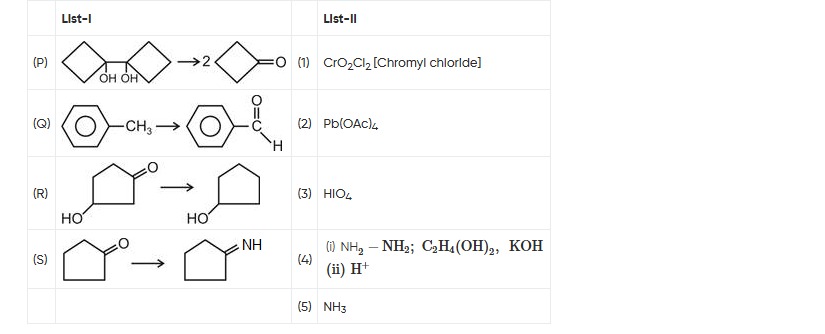Question
Question: Match List-I with List-II: List-I | List-II :---: | :---: (P) Cyclobutane-1,2-diol $\rightarrow$ 2 ...
Match List-I with List-II:
| List-I | List-II |
|---|---|
| (P) Cyclobutane-1,2-diol → 2 Cyclobutanone | (1) CrO2Cl2 [Chromyl chloride] |
| (Q) Toluene → Benzaldehyde | (2) Pb(OAc)4 |
| (R) 2-Hydroxycyclohexanone → Cyclohexane-1,2-diol | (3) HIO4 |
| (S) Cyclopentanone → Cyclopentanimine | (4) (i) NH2 - NH2; C2H4(OH)2, KOH (ii) H+ |
| (5) NH3 |

Answer
P-3, Q-1, R-4, S-5
Explanation
Solution
-
(P) Vicinal diol to dicarbonyl: HIO4 cleaves vicinal diols to form carbonyl compounds.
-
(Q) Toluene to Benzaldehyde: CrO2Cl2 (Étard reaction) oxidizes methylarene to benzaldehyde.
-
(R) Ketone to Methylene (via hydrazone): The conditions (NH2NH2, base, heat) indicate Wolff-Kishner reduction, converting the carbonyl to a methylene group.
-
(S) Ketone to Imine: Ketones react with ammonia to form imines.
